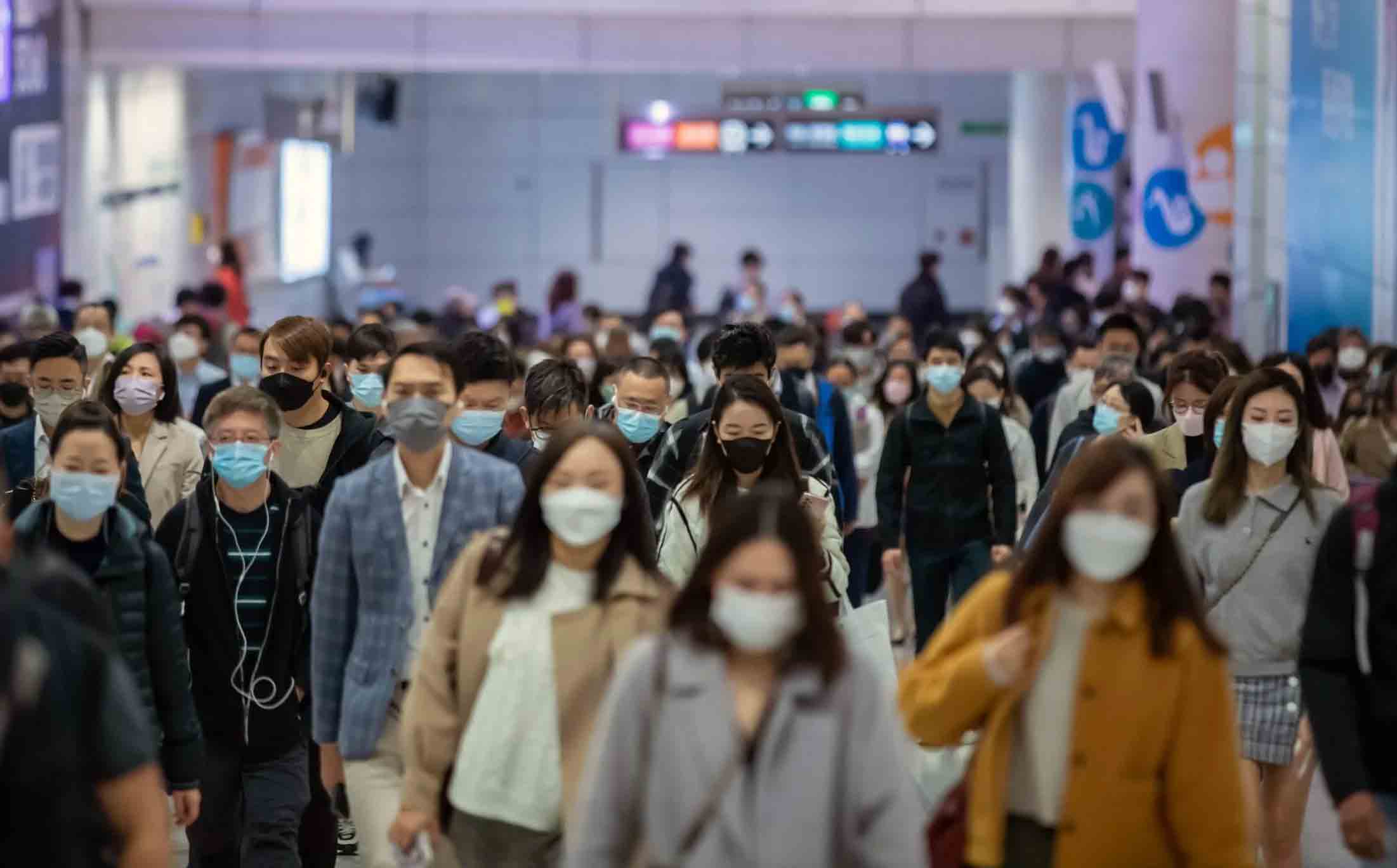Hong Kong & Singapore – A renewed wave of COVID-19 infections is sweeping across Hong Kong and Singapore, causing concern among health experts and prompting authorities to issue fresh public health advisories. The surge, largely driven by the recently identified FLiRT variants—KP.1 and KP.2—has led to a spike in daily cases, putting healthcare systems on alert.
Sharp Rise in Singapore Cases
Singapore’s Ministry of Health reported that COVID-19 infections nearly doubled in just one week. Between May 5 and May 11, the country recorded approximately 25,900 new cases, up from 13,700 the previous week.
Hospitalizations are also rising, with daily admissions increasing to around 250 patients per day, compared to 181 previously. While the number of patients in intensive care units remains low, averaging three per day, the increase in transmission is being closely monitored.
Health Minister Ong Ye Kung addressed the situation in Parliament, noting that the peak of this wave is expected between mid to late June. The minister emphasized the importance of mask-wearing in crowded places and urged seniors and vulnerable individuals to get vaccinated with the updated COVID-19 shots.
“We must learn to live with the virus while remaining cautious. Wearing masks and getting vaccinated continue to be our best lines of defense,” Ong said.
Hong Kong Monitors Situation Closely
Hong Kong is also seeing a gradual uptick in COVID-19 cases. Local healthcare experts warn that the city may experience a more significant rise in cases over the coming weeks. Although hospitalization numbers are currently stable, authorities are preparing for a possible escalation.
The Hong Kong Centre for Health Protection (CHP) has recommended that the public continue practicing personal hygiene, wear masks in crowded indoor areas, and avoid unnecessary gatherings. Additional vaccination drives are also being considered to protect high-risk groups.
What Are the FLiRT Variants?
The current wave is being driven by new subvariants of the Omicron lineage, specifically KP.1 and KP.2, known collectively as the FLiRT variants. These mutations are labeled for their specific genetic traits and increased transmissibility.
Both variants are now dominant in Singapore, making up over two-thirds of all new cases, according to the Ministry of Health. While they appear to spread more easily, there is no evidence suggesting they cause more severe illness compared to earlier Omicron strains.
The World Health Organization has not yet designated the FLiRT variants as “variants of concern,” but global health agencies are continuing to track their spread and behavior.
Healthcare Preparedness Measures
Singapore’s hospitals are taking steps to prepare for a potential influx of patients. Public hospitals have been advised to reduce non-urgent elective procedures and to shift stable patients to community care facilities to preserve bed capacity.
Telemedicine services and COVID-19 testing centers are also being mobilized, ensuring timely diagnosis and isolation when necessary.
In Hong Kong, similar preparations are underway. Hospital Authority officials are coordinating with clinics and private health services to handle an increase in respiratory cases. Citizens have been urged to seek medical help early and avoid waiting until symptoms worsen.
Public Guidelines & Safety Tips
Authorities in both regions have issued updated guidelines for the public:
-
Wear masks in enclosed or crowded spaces.
-
Avoid non-essential gatherings or travel.
-
Practice regular handwashing and sanitizing.
-
Monitor for symptoms such as cough, fever, and fatigue.
-
Stay home and test immediately if symptoms develop.
-
Receive the latest COVID-19 vaccine booster if eligible.
Vaccination Drives Renewed
In both cities, vaccination remains a key strategy. Singapore continues its free vaccination program, with priority given to senior citizens and individuals with chronic health conditions. Authorities are also promoting the use of updated vaccines that target current variants more effectively.
Hong Kong is running a similar campaign through government clinics and private hospitals. Special mobile vaccination units are being deployed in elderly care homes and residential communities.
Travel & Border Controls
At this stage, neither city has reinstated travel restrictions or mandatory quarantine for international arrivals. However, travelers are advised to stay informed of the latest health advisories and ensure they meet vaccination requirements before traveling.
Economic and Social Impact
Although the new wave has yet to significantly disrupt day-to-day life, some sectors are feeling cautious. Event organizers, schools, and businesses are revisiting contingency plans. Some have returned to hybrid work setups or temporarily reinstated mask mandates.
Retail, transport, and hospitality industries are also bracing for possible staff shortages if infection rates continue to climb.
Expert Perspective
Dr. Karen Lim, an infectious disease specialist in Singapore, commented,
“This wave reminds us that COVID-19 hasn’t disappeared. The virus is evolving, and our response must be proactive rather than reactive. The FLiRT variants are manageable, but only with community-wide cooperation.”
Dr. Joseph Chan, a public health consultant in Hong Kong, added,
“Public fatigue is real, but timely action can prevent overwhelming our hospitals. Vaccination and masking, especially in high-density areas, will be key.”
Looking Ahead
The coming weeks will be critical in determining the trajectory of this COVID-19 wave. With coordinated government response and public cooperation, health experts remain optimistic that the surge can be contained without the need for widespread lockdowns or severe restrictions.
Citizens in both Hong Kong and Singapore are encouraged to remain vigilant, stay updated through official government portals, and prioritize health and safety in their daily routines.
www.yallatv.ae





